Hospital Software
Hospital Management Software (HMS) is a comprehensive digital solution designed to streamline and automate the core functions of a hospital or healthcare facility. It integrates various departments and services—such as patient registration, outpatient and inpatient management, billing, laboratory, pharmacy, radiology, human resources, and inventory—into one centralized system. By doing so, HMS improves communication and coordination between departments, reduces paperwork, minimizes human error, and ensures efficient use of resources. It enables healthcare providers to access real-time patient data, track treatment histories, and manage appointments and discharges more effectively. Advanced HMS platforms often include modules for electronic medical records (EMR), telemedicine, mobile access, reporting tools, and compliance management. These features not only help in improving the quality of patient care but also aid hospital administrators in making data-driven decisions, optimizing workflows, and ensuring financial transparency. With cloud-based and AI-powered solutions becoming more common, modern Hospital Management Software offers scalability, data security, and intelligent automation, making it an indispensable tool in today’s healthcare landscape.
Standard Modules
FrontDesk Management plays a vital role in ensuring smooth day-to-day operations and creating a positive first impression for visitors, clients, and staff. It encompasses the coordination of administrative tasks, visitor handling, and communication to maintain an organized and efficient front-of-house environment.
Features
- Visitor Registration & Tracking
- Appointment Scheduling
- Call Handling
- Reception Staff Management
- Security Integration
- Digital Sign-In Kiosks
- Notification System
- Document Handling
- Customer Service Support
- Internal Communication Hub
OPD Management ensures the efficient functioning of outpatient services by streamlining patient flow, appointment scheduling, consultation processes, and administrative tasks. A well-organized OPD system enhances patient experience, reduces wait times, and improves overall healthcare delivery.
Features
- Online & Onsite Appointment Booking
- Patient Registration & Records
- Queue & Token Management
- Doctor Scheduling & Availability
- Billing & Payments
- Prescription & Reports Management
- Notification System
- Referral & Follow-Up Tracking
- Integration with EMR/HMIS
- Analytics & Reporting
Billing Management is a crucial component of any business or service-oriented organization, ensuring accurate, timely, and transparent financial transactions. A robust billing system improves operational efficiency, reduces errors, and enhances client trust by maintaining clear and organized payment processes.
Features
- Invoice Generation
- Multi-Mode Payment Support
- Tax Calculation & Compliance
- Discounts & Adjustments
- Recurring Billing
- Credit & Debit Note Management
- Payment Tracking & Receipts
- Integrated Reporting & Analytics
- User Access Control
- Integration with ERP/Accounting Systems
Patient Management is a centralized system designed to handle all aspects of patient care, from registration and medical history to treatment planning and follow-ups. It streamlines clinical workflows, improves patient engagement, and enhances the overall efficiency of healthcare services.
Features
- Patient Registration
- Electronic Medical Records (EMR)
- Appointment Scheduling
- Clinical Documentation
- Prescription Management
- Lab & Diagnostic Integration
- Billing & Insurance
- Follow-Up & Reminder System
- Patient Communication
- Data Security & Access Control
MIS (Management Information System) Reports are vital tools that provide structured data and insights to help organizations monitor performance, analyze trends, and support strategic decision-making. By compiling data from various departments, MIS reports ensure transparency, efficiency, and data-driven management.
Features
- Patient Registration
- Electronic Medical Records (EMR)
- Appointment Scheduling
- Clinical Documentation
- Prescription Management
- Lab & Diagnostic Integration
- Billing & Insurance
- Follow-Up & Reminder System
- Patient Communication
- Data Security & Access Control
Pricing
Standard Plan
Price: ₹ 9,999 / Per Year
Regular Price: ₹ 14,999
Including 1 year service and support
Standard Plan Modules
Front Desk Management
OPD
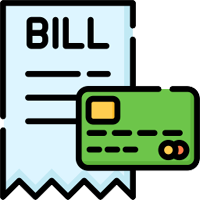
Billing and Invoicing
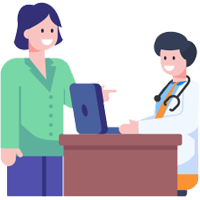
Patient Management
MIS Report
Professional Modules
FrontDesk Management plays a vital role in ensuring smooth day-to-day operations and creating a positive first impression for visitors, clients, and staff. It encompasses the coordination of administrative tasks, visitor handling, and communication to maintain an organized and efficient front-of-house environment.
Features
- Visitor Registration & Tracking
- Appointment Scheduling
- Call Handling
- Reception Staff Management
- Security Integration
- Digital Sign-In Kiosks
- Notification System
- Document Handling
- Customer Service Support
- Internal Communication Hub
OPD Management ensures the efficient functioning of outpatient services by streamlining patient flow, appointment scheduling, consultation processes, and administrative tasks. A well-organized OPD system enhances patient experience, reduces wait times, and improves overall healthcare delivery.
Features
- Online & Onsite Appointment Booking
- Patient Registration & Records
- Queue & Token Management
- Doctor Scheduling & Availability
- Billing & Payments
- Prescription & Reports Management
- Notification System
- Referral & Follow-Up Tracking
- Integration with EMR/HMIS
- Analytics & Reporting
Billing Management is a crucial component of any business or service-oriented organization, ensuring accurate, timely, and transparent financial transactions. A robust billing system improves operational efficiency, reduces errors, and enhances client trust by maintaining clear and organized payment processes.
Features
- Invoice Generation
- Multi-Mode Payment Support
- Tax Calculation & Compliance
- Discounts & Adjustments
- Recurring Billing
- Credit & Debit Note Management
- Payment Tracking & Receipts
- Integrated Reporting & Analytics
- User Access Control
- Integration with ERP/Accounting Systems
Patient Management is a centralized system designed to handle all aspects of patient care, from registration and medical history to treatment planning and follow-ups. It streamlines clinical workflows, improves patient engagement, and enhances the overall efficiency of healthcare services.
Features
- Patient Registration
- Electronic Medical Records (EMR)
- Appointment Scheduling
- Clinical Documentation
- Prescription Management
- Lab & Diagnostic Integration
- Billing & Insurance
- Follow-Up & Reminder System
- Patient Communication
- Data Security & Access Control
Appointment Scheduling is a system or tool that allows users to book, manage, and track appointments online. It streamlines the scheduling process by offering real-time availability, automated notifications, and integration with calendars or other tools. It is used across various industries like healthcare, beauty, education, and professional services to improve efficiency, reduce no-shows, and enhance customer experience.
Features
- Online Booking Interface
- Real-Time Availability
- Automated Reminders
- Rescheduling & Cancellation
- Multiple Staff/Service Support
- Recurring Appointments
- Calendar Integration
- Payment Processing
- Admin Dashboard
- Mobile-Friendly Design
- Analytics & Reporting
- Customizable Settings
- Security & Compliance
- Third-Party Integrations
Electronic Health Records (EHR) are digital versions of patients’ paper charts, designed to store and manage health information electronically. They provide real-time, patient-centered records that make information available instantly and securely to authorized users. EHR systems streamline clinical workflows, improve patient care, and support data sharing across healthcare providers and facilities.
Features
- Patient Demographics
- Clinical Documentation
- Medication Management
- Lab & Test Results Integration
- Appointment Scheduling
- Secure Messaging
- Electronic Prescriptions (eRx)
- Access Controls & Security
- Billing & Coding Support
- Data Sharing & Interoperability
- Patient Portal
- Decision Support Tools
- Reporting & Analytics
- Mobile Access
A Laboratory Information System (LIS) is a software solution designed to manage and streamline the workflow of clinical laboratories. It handles sample tracking, test ordering, results management, and data reporting, ensuring accuracy, efficiency, and compliance. LIS enhances laboratory operations by integrating with diagnostic instruments, electronic health records, and other healthcare systems to provide real-time access to critical lab data.
Features
- Sample Management
- Test Ordering & Processing
- Result Entry & Reporting
- Instrument Integration
- Quality Control Management
- Data Validation & Alerts
- Barcode Labeling
- User Role Management
- Interoperability
- Inventory Management
- Audit Trails
- Patient Record Linking
- Customizable Workflows
- Reporting & Analytics
- Regulatory Compliance
A Radiology Information System (RIS) is a specialized software platform used to manage medical imagery and associated data within radiology departments. It streamlines the workflow of imaging centers by facilitating patient registration, scheduling, image tracking, reporting, and billing. RIS integrates with PACS (Picture Archiving and Communication System) and EHR systems to enhance diagnostic efficiency, reduce turnaround time, and support coordinated patient care.
Features
- Patient Registration & Scheduling
- Imaging Order Management
- Integration with PACS
- Image Tracking & Workflow Management
- Radiology Reporting
- Voice Recognition Support
- Results Distribution
- Billing & Coding Integration
- Role-Based Access Control
- Analytics & Performance Monitoring
- Audit Trails & Compliance
- Multi-Modality Support
- Electronic Notificationschanges.
- Customizable Dashboards
- Interoperability
Medical Billing and Coding is the process of translating healthcare services, diagnoses, procedures, and equipment into standardized alphanumeric codes used for insurance claims and billing. It ensures accurate documentation and facilitates reimbursement from payers like insurance companies, Medicare, and Medicaid. This system plays a critical role in the healthcare revenue cycle by minimizing claim denials, improving cash flow, and ensuring regulatory compliance.
Features
- ICD, CPT, and HCPCS Coding Support
- Claim Creation and Submission
- Eligibility Verification
- Denial Management
- Billing & Invoicing
- Integrated Payment Processing
- Compliance Tools
- Audit Trails
- Claim Scrubbing
- Reporting & Analytics
- Patient Account Management
- EHR/EMR Integration
- Code Lookup Tools
- Multi-Payer Support
- User Role Management
Bed Management is a hospital operations system designed to optimize the allocation, tracking, and utilization of inpatient beds. It helps healthcare facilities manage bed availability in real time, coordinate patient admissions, transfers, and discharges, and ensure efficient patient flow. By improving visibility and communication across departments, bed management systems contribute to reduced wait times, enhanced resource use, and better patient care.
Features
- Real-Time Bed Tracking
- Patient Admission & Discharge Coordination
- Bed Assignment Rules
- Dashboard Views
- Transfer Management
- Priority & Waitlist Management
- Integration with EHR/HIS
- Notifications & Alerts
- Environmental Services Coordination
- Infection Control Support
- Reporting & Analytics
- Mobile Access
- Role-Based Access
- Discharge Planning Tools
- Multi-Facility Support
Staff Management is a system designed to oversee and streamline all aspects of workforce administration in a healthcare setting. It facilitates scheduling, tracking attendance, managing roles and responsibilities, credentialing, and performance monitoring. The goal is to enhance workforce efficiency, ensure compliance, and support optimal staffing levels for delivering high-quality patient care.
Features
- Staff Scheduling
- Time & Attendance Tracking
- Role & Department Assignment
- Credential Management
- Leave & Absence Management
- Payroll Integration
- Performance Monitoring
- Staff Communication Tools
- Compliance Tracking
- Training & Onboarding Modules
- Multi-Site Management
- Mobile Access
- Real-Time Availability View
- Customizable Reports
- User Role Management
A Patient Portal is a secure online platform that gives patients access to their personal health information and medical records anytime, from anywhere. It empowers patients to actively participate in their healthcare by enabling communication with providers, appointment management, and access to lab results, prescriptions, and educational materials. Patient portals enhance transparency, improve engagement, and support better health outcomes.
Features
- Access to Medical Records
- Appointment Scheduling
- Secure Messaging
- Prescription Management
- Lab Results Viewing
- Billing & Payments
- Health Education Resources
- Forms & Document Upload
- Notification & Reminders
- Family Access (Proxy Accounts)
- Mobile Access
- Personal Health Tracking
- Integration with EHR
- Privacy & Security Controls
- Multilingual Support
Electronic Prescriptions (e-Prescriptions) enable healthcare providers to generate and transmit prescriptions digitally to pharmacies. This system replaces handwritten or faxed prescriptions, reducing errors, enhancing medication safety, and streamlining the prescribing process. e-Prescribing improves accuracy, supports drug interaction checks, and facilitates faster fulfillment of medications for patients.
Features
- Digital Prescription Creation
- Pharmacy Integration
- Medication History Access
- Drug Interaction & Allergy Checks
- Formulary Checks
- Refill Management
- EHR Integration
- Controlled Substances e-Prescribing (EPCS)
- Patient Medication Instructions
- Duplicate & Error Prevention
- Mobile Access
- Audit Trails
- Multi-Provider Access
- Clinical Decision Support
- Regulatory Compliance
Reports and Analytics refer to the tools and processes used to collect, analyze, and present data to inform decision-making in various industries, including healthcare. These systems enable organizations to gain actionable insights, improve operational efficiency, monitor performance, and meet regulatory requirements. By visualizing data trends, reports, and key performance indicators (KPIs), businesses can enhance performance, optimize resources, and drive strategic decisions.
Features
- Customizable Dashboards
- Real-Time Data Access
- Advanced Data Filtering
- Automated Report Generation
- Interactive Charts & Graphs
- Data Export Options
- Predictive Analytics
- Performance Metrics & KPIs
- Benchmarking
- Regulatory Compliance Reports
- Ad-hoc Reporting
- Integration with Other Systems
- Data Visualization Tools
- Custom Alerts & Notifications
- Audit Trails & Data Integrity
Security and Access Control systems are designed to protect sensitive data, ensure that only authorized users can access certain information or areas, and maintain the integrity of systems. These systems play a critical role in preventing unauthorized access, safeguarding privacy, and complying with regulatory standards. Whether in a physical or digital environment, security and access control provide peace of mind by controlling and monitoring access to resources.
Features
- User Authentication
- Role-Based Access Control (RBAC)
- Single Sign-On (SSO)
- Access Logs & Audit Trails
- Data Encryption
- Permission Management
- Biometric Authentication
- Time-Based Access
- Security Alerts & Notifications
- Geofencing
- Compliance Reporting
- Remote Access Management
- Temporary Access Codes
- Physical Access Control
- Integration with Other Security Systems
Interoperability refers to the ability of different systems, devices, or applications to communicate, exchange, and use data effectively across various platforms and environments. In healthcare, it ensures that patient information, medical records, and clinical data can be shared seamlessly between different healthcare providers, organizations, and technologies. Interoperability is crucial for improving care coordination, reducing errors, and enhancing patient outcomes.
Features
- Data Exchange Standards
- Cross-System Compatibility
- Real-Time Data Sharing
- Secure Data Transfers
- Patient Data Consolidation
- Clinical Workflow Integration
- Automated Data Mapping
- Regulatory Compliance
- Health Information Exchange (HIE)
- API Integrations
- Data Visualization
- Interdepartmental Communication
- Patient Access
- Error Reduction
- Scalability
Training and Support services are essential for ensuring that users can effectively utilize new software, systems, or equipment. These services provide guidance, education, and ongoing assistance to help individuals or organizations optimize performance and resolve any issues that arise. Proper training and reliable support contribute to user satisfaction, system efficiency, and the overall success of the implementation.
Features
- User Training Programs
- Onboarding Assistance
- Live Support Channels
- Knowledge Base
- Webinars and Workshops
- On-Demand Training Modules
- Interactive Simulations
- Documentation & Manuals
- Troubleshooting and Issue Resolution
- Software Updates and Patches
- Customer Feedback Mechanism
- Performance Optimization
- Dedicated Support Teams
- 24/7 Availability
- Certification Programs
MIS (Management Information System) Reports are vital tools that provide structured data and insights to help organizations monitor performance, analyze trends, and support strategic decision-making. By compiling data from various departments, MIS reports ensure transparency, efficiency, and data-driven management.
Features
- Patient Registration
- Electronic Medical Records (EMR)
- Appointment Scheduling
- Clinical Documentation
- Prescription Management
- Lab & Diagnostic Integration
- Billing & Insurance
- Follow-Up & Reminder System
- Patient Communication
- Data Security & Access Control
Pricing
Professional Plan
Price ₹ 24,999 / Per Year
Regular Price: ₹ 34,999
Including 1 year service and support
Professional Plan Modules
Front Desk Management
OPD

Billing and Invoicing

Patient Management

Appointment Scheduling
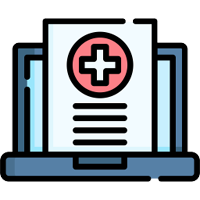
Electronic Health Records (EHR)
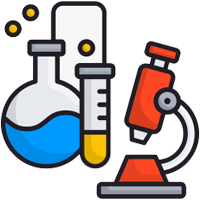
Laboratory Information System (LIS)
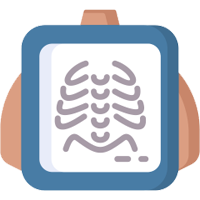
Radiology Information System (RIS)
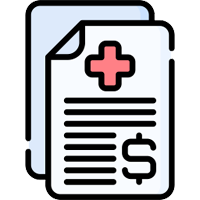
Medical Billing and Coding
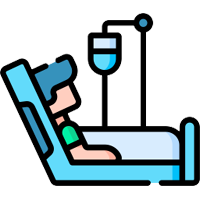
Bed Management

Staff Management

Patient Portal

Electronic Prescriptions
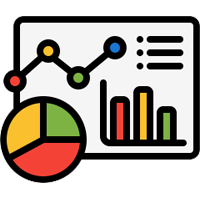
Reports and Analytics
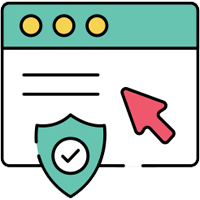
Security and Access Control
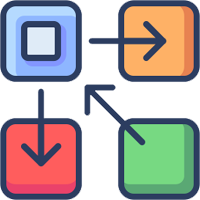
Interoperability
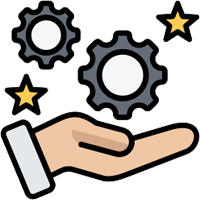
Training and Support
MIS Report
Why Choose Us:
- Creativity And Innovation
- Dedicated Experts
- Trusted Security
- Integrity And Transparency
- Timely Delivery
- Result Driven Approach
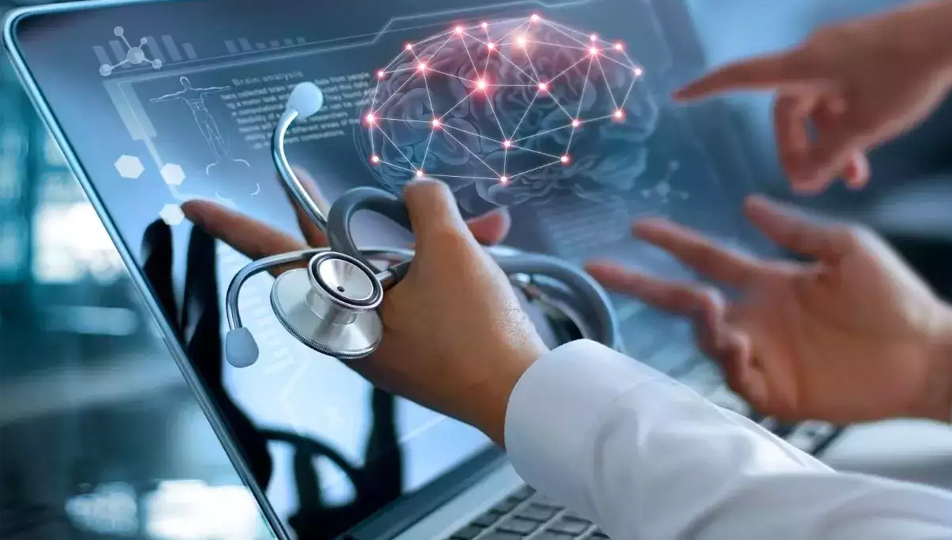
Let us take the technical weight off your shoulders
BOOK A CALLLet’s Get Started
We offer full-cycle technology solutions that streamline your digital transformation journey. With cutting-edge technical expertise, INT. simplifies complex business challenges with innovative solutions for 100+ fastest-growing enterprises.

